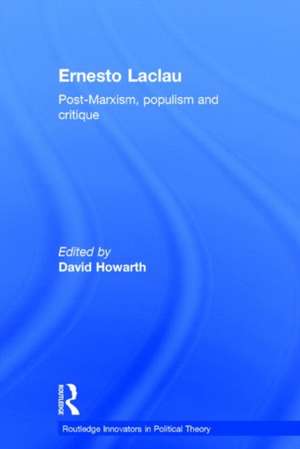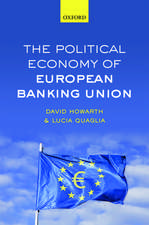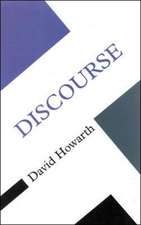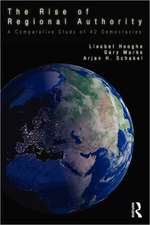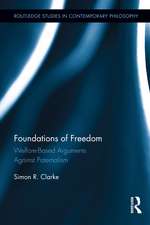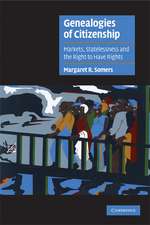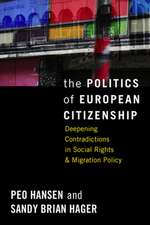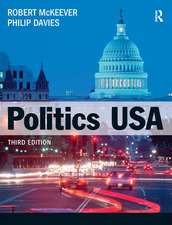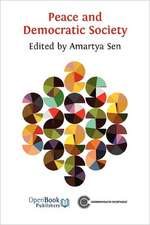Ernesto Laclau: Post-Marxism, Populism and Critique: Routledge Innovators in Political Theory
Editat de David Howarthen Limba Engleză Hardback – 25 sep 2014
Post-Marxist Political Theory: Discourse, Hegemony, Signification
Laclau has developed an original conception of post-Marxist political theory that is grounded on a materialist theory of discourse. The latter is constructed from a range of theoretical and philosophical sources, including poststructuralism, psychoanalysis, linguistic theory and post-analytical philosophy. The centerpiece of this approach is the category of hegemony, which develops Antonio Gramsci’s seminal contribution to Marxist theory, and is in turn connected to a web of related concepts, including articulation, dislocation, the logics of equivalence and difference, political identification, myth and social imaginary. These ideas have informed a number of empirical and theoretical studies associated with the Essex School of Discourse Theory.
Analyzing Populism
A central concern of Laclau’s writings has been the question of populism, both in Latin America where hebegan his interrogation of the phenomenon (especially the experience of Peronism), and then in his engagement with the "new social movements" and socialist strategy more generally. The concept of populism becomes a general way of exploring the "primacy of politics" in society.
Critical Engagements
Laclau is first and foremost an engaged intellectual who has consistently sought to theorize contemporary events and reality, and to debate with the leading intellectual figures of the day, with respect to questions of political principle and strategy. His recent debates with Judith Butler and Slavoj Žižek in Contingency, Hegemony, Universality: Contemporary Dialogues on the Left, published in 2011 (London: Verso), exemplify this critical ethos. He continues to elaborate his approach by challenging and articulating related approaches, and by situating his work in connection to the democratic Left.
| Toate formatele și edițiile | Preț | Express |
|---|---|---|
| Paperback (1) | 439.85 lei 43-57 zile | |
| Taylor & Francis – 24 sep 2014 | 439.85 lei 43-57 zile | |
| Hardback (1) | 1112.34 lei 43-57 zile | |
| Taylor & Francis – 25 sep 2014 | 1112.34 lei 43-57 zile |
Preț: 1112.34 lei
Preț vechi: 1356.52 lei
-18% Nou
Puncte Express: 1669
Preț estimativ în valută:
212.84€ • 222.82$ • 176.12£
212.84€ • 222.82$ • 176.12£
Carte tipărită la comandă
Livrare economică 07-21 aprilie
Preluare comenzi: 021 569.72.76
Specificații
ISBN-13: 9780415870863
ISBN-10: 0415870860
Pagini: 294
Dimensiuni: 156 x 234 x 20 mm
Greutate: 0.54 kg
Ediția:New.
Editura: Taylor & Francis
Colecția Routledge
Seria Routledge Innovators in Political Theory
Locul publicării:Oxford, United Kingdom
ISBN-10: 0415870860
Pagini: 294
Dimensiuni: 156 x 234 x 20 mm
Greutate: 0.54 kg
Ediția:New.
Editura: Taylor & Francis
Colecția Routledge
Seria Routledge Innovators in Political Theory
Locul publicării:Oxford, United Kingdom
Public țintă
Postgraduate and UndergraduateCuprins
David Howarth, ‘Introduction: Post-Marxism, Populism, and Critique’ Section I: Post-Marxist Political Theory: Discourse, Hegemony, and Signification 1. ‘Discourse’ 2. ‘Dislocation and Capitalism’ and ‘Social Imaginary and Democratic Revolution’ 3. ‘Why do Empty Signifiers Matter to Politics’ 4 ‘The Death and Resurrection of the Theory of Ideology’ 5 ‘Ideology and Post-Marxism’ Section II: Analyzing Populism 6 ‘Towards a Theory of Populism’ 7 ‘Populism: What’s in a name?’ 8 ‘Why Constructing a "People" is the Main Task of Radical Politics' Section III: Critical Engagements 9. ‘The Time is out of Joint’ 10 ‘Can Immanence Explain Social Struggles’ 11 ‘On Real and Absolute Enemies’ 12 ‘Bare Life or Social Indeterminacy’ 13 ‘Community and its Paradoxes: Richard Rorty’s "Liberal Utopia"’ Conclusion 14. An Interview with Ernesto Laclau
Descriere
Ernesto Laclau has blazed a unique trail in political theory and philosophy since the early 1970s. In so doing, he has articulated a range of philosophical and theoretical currents into a coherent alternative to mainstream models and practices of conducting social and political science.
